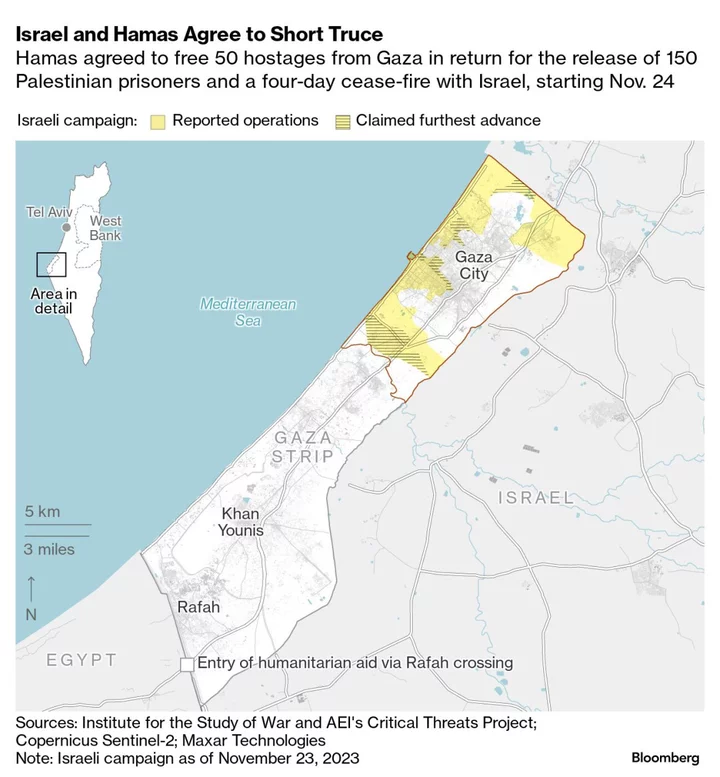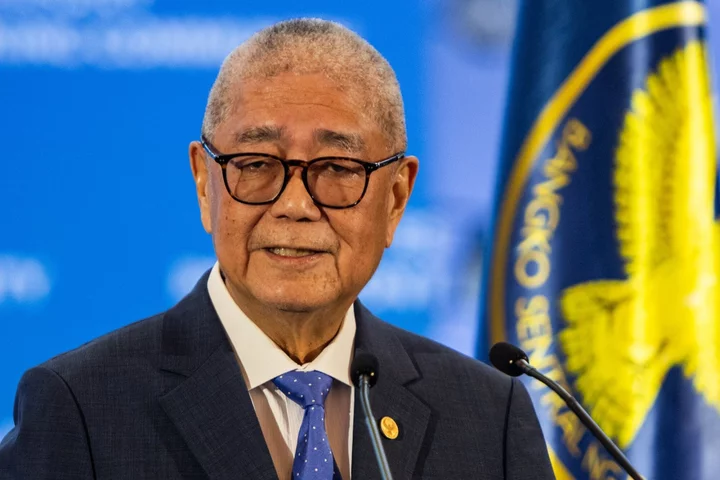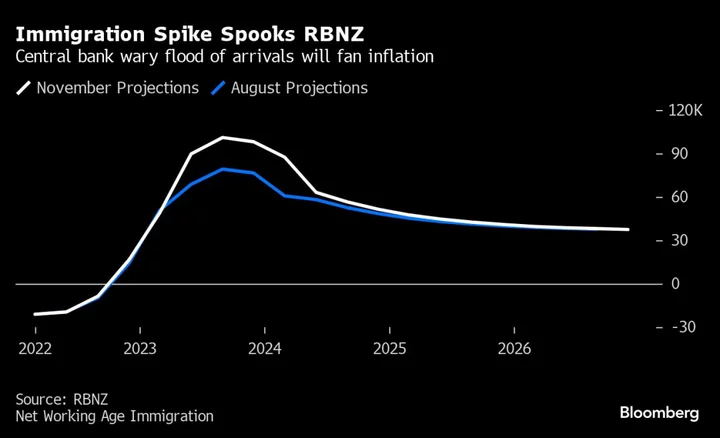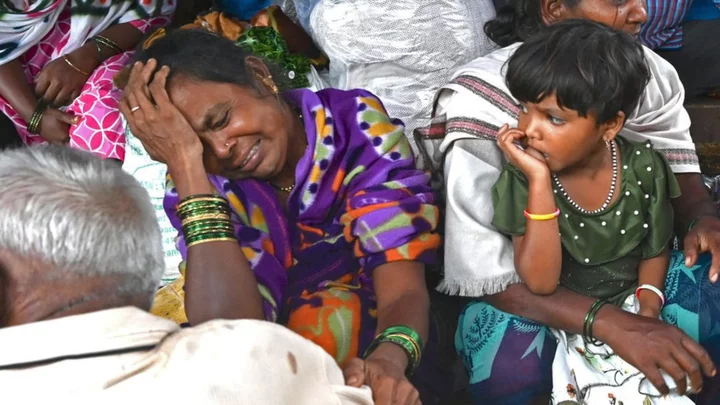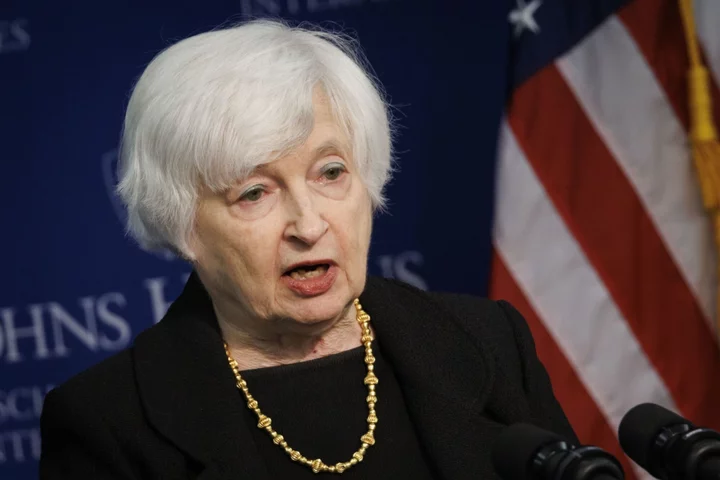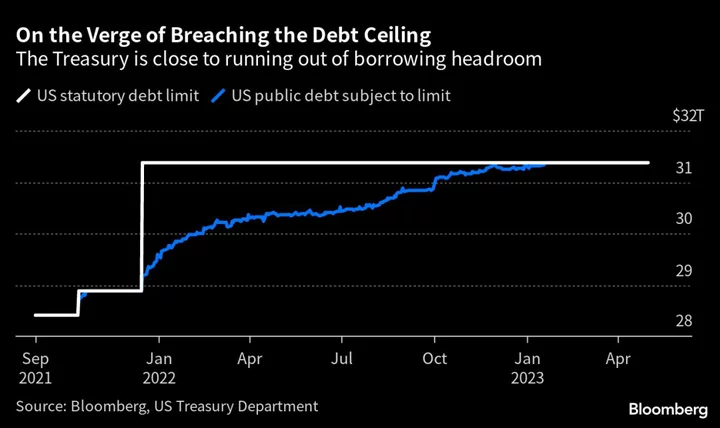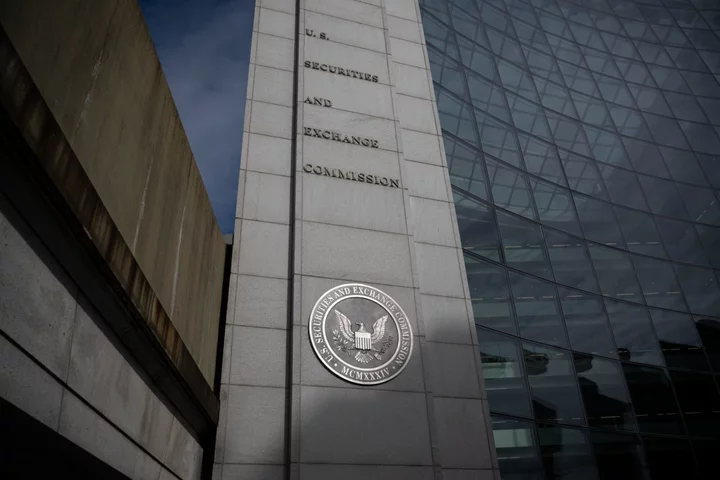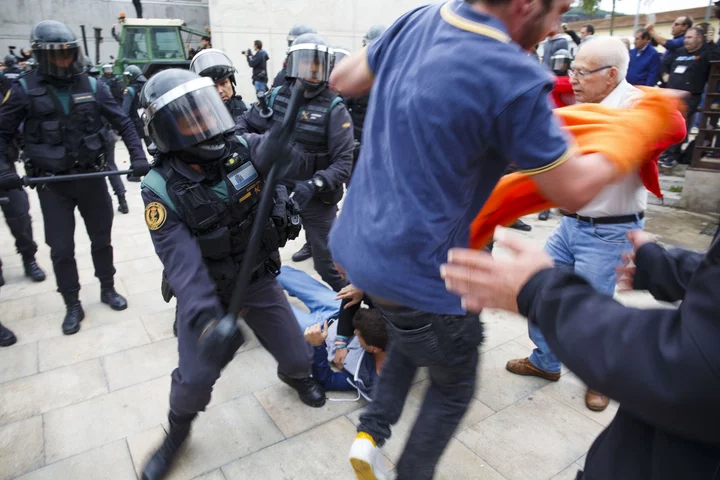Israel is coming under increasing pressure to agree to an extension of a four-day pause in its war with Hamas.
US President Joe Biden said he wants to prolong the cease-fire in the devastating war, which has killed thousands of people since it erupted seven weeks ago and inflamed tensions in the Middle East and beyond. The halt in fighting — part of a deal for Hamas to free hostages held in Gaza and Israel to release Palestinian prisoners — is due to end on Tuesday morning.
Israeli Prime Minister Benjamin Netanyahu’s office said negotiations were continuing on Monday afternoon over list of people to be freed next.
“We are aware of the stress that families are under, and we will add information when it becomes possible,” his office said.
The temporary halt began last Friday after intense negotiations brokered by Qatar, with the help of Egypt and the US. Hamas and Israel agreed the Iran-backed militant group would free 50 captives in stages in return for the Israeli government releasing 150 Palestinians.
Egypt’s government-run information service said Monday that negotiators were close to an agreement on a two-day extension.
Netanyahu, speaking to Biden on Sunday, said every extra day of the truce is conditional on Hamas freeing 10 more hostages. Hamas said it wants a longer pause, but didn’t specify if it would release more captives.
A longer truce “would be welcome,” Netanyahu said. “At the same time, I also told President Biden that at the end of the outline, we will go to realizing our goals with full force: Eliminating Hamas, ensuring that Gaza will not go back to being what it was and — of course — releasing all of our hostages.”
The US leader said the pact was “delivering life-saving results.”
“This deal is structured so that it can be extended to keep building on these results,” he said. “That’s my goal.”
Despite disputes and delays, the truce has held for three exchanges of hostages through Sunday, totaling 58 people, including non-Israelis. Those freed by Hamas on Sunday included a four-year-old girl — a US-Israeli dual national — whose parents were killed in the group’s Oct. 7 attack on Israel. That attack sparked the war.
Hamas, designated a terrorist organization by the US and European Union, and other Islamist groups killed around 1,200 people that day and abducted 240. Israel retaliated with a massive bombardment of Gaza, which is run by Hamas, and a ground offensive. Around 15,000 Palestinians have been killed, according to the Hamas-run health ministry, and much of the Mediterranean enclave’s been reduced to rubble.
Hamas was slated to free another 11 Israelis on Monday. Israel has released around 120 Palestinians, all of them women and minors.
Some Israeli officials worry the longer the pause goes on for, the more Hamas will regroup and the harder it will be for Israel to restart the war.
“Hamas will stretch this out a long time,” said Joshua Krasna, a former senior Israeli diplomat and intelligence analyst. “The question is how much legitimacy Israel will have to restart its campaign after an extended cease-fire.”
The civilian death toll in Gaza is causing concern among Democratic politicians in the US. Some have called for the White House to tie further military aid to Israel to more compliance with international humanitarian law.
The truce includes the delivery of more food and medicine into Gaza via the Rafah border crossing with Egypt. The United Nations and Palestinian officials say the war’s created a humanitarian catastrophe in the territory. Israel said 200 aid trucks entered Gaza on Sunday.
The West Bank Is Being Reshaped Along With the Gaza Strip
The UN says many people still have no food or cooking fuel and that bakeries aren’t operating, raising concerns about nutrition, especially in northern Gaza, the focus of Israel’s ground offensive.
The “aid barely registers against the huge needs of 1.7 million displaced people,” Stephane Dujarric, the spokesperson for the UN secretary-general, said in a statement. “The humanitarian catastrophe in Gaza is getting worse by the day.”
The war continues to reverberate in the Middle East. On Sunday, a chemical tanker linked to an Israeli billionaire was saved by a US warship after armed men boarded the vessel in the Gulf of Aden. The men were forced to disembark and were then caught by the navy.
While the US didn’t confirm the identity of the attackers, two missiles were fired at the warship — a destroyer called the USS Mason — shortly afterward from Houthi-controlled territory in Yemen.
No one on the chemical tanker, called the Central Park and part of Israeli businessman Eyal Ofer’s Zodiac Group, or the Mason was injured.
The Houthis, an Iran-backed rebel group based in Yemen, support Hamas and have fired missiles toward Israel in recent weeks. They’ve also threatened Israeli ships and, on Nov. 19, seized a vehicle carrier called the Galaxy Leader in the Red Sea. It’s yet to be released.
--With assistance from Fadwa Hodali.
(Updates with Israeli statement starting in second paragraph.)
Author: Paul Wallace, Alisa Odenheimer and Henry Meyer

